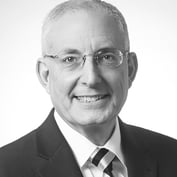Sallie Krawcheck, who 16 months ago introduced a female-focused robo-advisor, Ellevest, is expanding into financial advisory and financial planning with two new initiatives for high-net-worth individuals, she tells ThinkAdvisor in an interview.
The Ellevest CEO and co-founder, former head of Smith Barney and Merrill Lynch Wealth Management and former Citi chief financial officer, is testing what she’s dubbed “Prime” offerings and seeking to hire at least one financial advisor and a financial planner.
Requirements for the advisor spot include no fewer than five years’ experience and a book of business of preferably female clients. Financial planner requirements include active Certified Financial Planner designation and no fewer than seven years’ industry experience, at least partly working in a private practice.
The expansion follows new funding of $32.5 million Ellevest received this past August from Rethink Impact, PSP Growth and PSP Capital, and Salesforce Ventures, among others, and including returning investors Morningstar, Khosla Ventures, Mellody Hobson and others. Of the total, $9.6 million was from conversion of a previously announced convertible note.
Ellevest manages $54 million for more than 100 clients, up to 10% of whom are high-net worth individuals, according to the robo’s most recent Form ADV, filed on Sept. 17.
Krawcheck’s two-fold mission is to help women advance in the workplace and to teach them how to invest. Women, she says, have been marginalized by the “gender investing gap.” She aims to close it.
How? Instead of pivoting on picking winners and outperforming the market, as men generally invest, the Ellevest approach concentrates on goals-based investing geared to women’s concrete needs and view that lies ahead. It considers women’s longer lifespan and their salary curves, different from those of men.
From 2004 to 2011, Krawcheck was known as “the most powerful woman on Wall Street.” Her high-profile stints ended with elimination of her post at Merrill Lynch and dismissal from Citi. She’d started out as a gutsy research analyst with Sanford C. Bernstein & Co.
In 2013, she launched a comeback by acquiring the professional women’s network 85 Broads, a year later renaming it Ellevate Network. Then, with Charlie Kroll, founder of the software startup Andera, the long-tech-minded executive co-founded Ellevest. Kroll serves as president.
ThinkAdvisor recently interviewed Krawcheck, 52, on the phone from her company headquarters in New York. Not shying from her trademark humor, she highlighted her key strengths as “guts, energy and clean living.” Here are excerpts from our conversation:
THINKADVISOR: What are Ellevest’s new “Prime” offerings for high-net-worth individuals?
SALLIE KRAWCHECK: One thing we’re testing is Ascent, which is financial planning. The other, which doesn’t have a name yet but that we’re beginning to test, [provides] financial advisors as well.
This is a result of the new funding Ellevest just received?
Of course. But it’s because of a couple of things. The feedback we’ve had about the digital investment platform has been terrific. In addition, women have asked us to do more for them: They want financial plans and financial advice. So the raise was based on driving the growth in digital but also [because] we’re testing and expanding into financial advisory and financial planning.
Will those initiatives be part of — “a hybrid” — or separate from the digital platform?
We’ll see. It’s hard for me to believe they both won’t have some digital component, but we’ll be figuring that out with the [clients and potential clients]. We test and learn and iterate and change. We build our business with women, not at women.
But are the new initiatives aimed mainly at women?
As a business, Ellevest is women first. Our target audience is women. We have men as clients too. And we’re very happy to have gentlemen clients, but we always are first and foremost talking to women.
Will an Ellevest advisor meet face-to-face with clients?
We’ll see. I don’t know why not.
What else are you doing with the new money?
It’s not sexy. We’re using it to run the business — to pay people and so on.
You’re not making enough?
Gosh no! We’re losing money. We didn’t run out of money. We’ve done a couple of raises before. We’re spending money to grow the business.
That makes sense.
We’re expected to lose money. Betterment and Wealthfront are losing money too. The reason startups like us have to raise money is because we don’t have [that much in] revenues yet. It’s not unusual for a new business to lose money. In fact, when Merrill starts a new business, that business will lose money until it gets to an asset size and revenue base to support the cost base.
What do your investors get out of investing in Ellevest?
An ownership percent of the company, and we get ourselves to growth and profitability.
Been challenging to raise new money?
Not challenging to find money, but challenging to find money from the right investors. Who are the investors who’ll bring more than simply money to the table? For me, it’s important that we have investors who not only tell us they believe in and are aligned with our mission but who have proven they are. We’re building a business for the long term. We want to build an iconic company, and that’s going to take some time.
What’s so different about your female-focused robo-advisor?








 October 10, 2017 at 10:46 AM
October 10, 2017 at 10:46 AM










